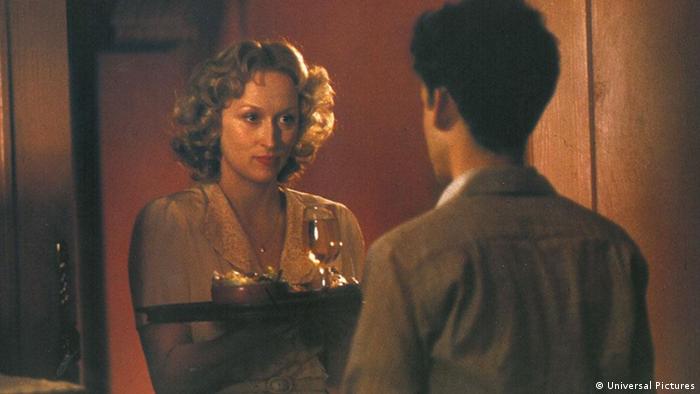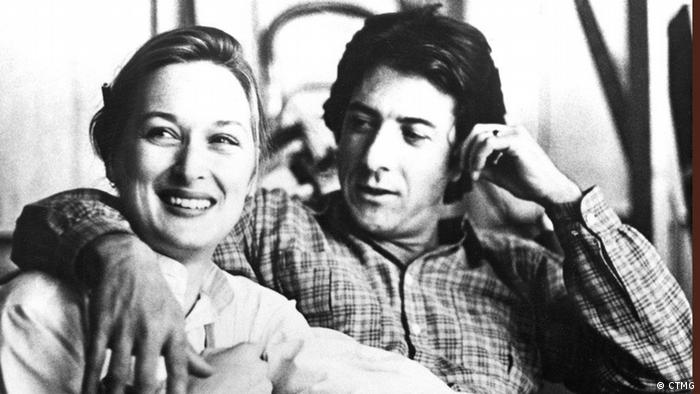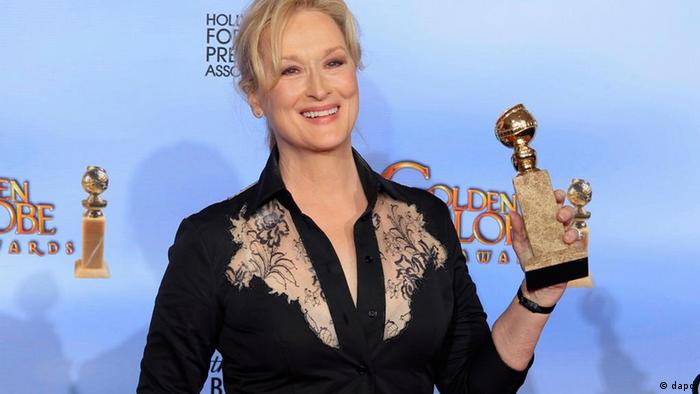Berlinale honors Streep’s lifetime achievements
 From fragile to commanding, Meryl Streep has played roles in films that have set off scandals and wide-ranging cultural debates. Particularly in Germany, where she will receive an Honorary Golden Bear at the Berlinale.
From fragile to commanding, Meryl Streep has played roles in films that have set off scandals and wide-ranging cultural debates. Particularly in Germany, where she will receive an Honorary Golden Bear at the Berlinale.
In its annual search for glamour, the German press regularly complains that the Berlin International Film Festival doesn’t attract enough top movie stars. But this year’s whining has been kept to a minimum thanks to an Honorary Golden Bear for Lifetime Achievement being awarded to Meryl Streep on Tuesday.
Streep, 62, has continued her string of success recently, having earned an Oscar nomination and Golden Globe for her role as former British Prime Minister Margaret Thatcher in the 2011 film “The Iron Lady.”
“Who could portray Margaret Thatcher as kindly as Meryl Streep,” asked Rainer Rother, artistic director of the German Kinemathek, a film and television body taking part in honoring Streep at this year’s Berlinale festival.
No stranger to scandal
Her “kind” portrayal of Thatcher, a controversial figure in British and global politics, has set of flurry of criticism, but that’s something the actress is accustomed to. Streep’s career began in 1978 with the US television mini-series “Holocaust,” which showed the life of the Jewish Weiss family struggling to survive in Nazi Germany.
 Photo: Two men fall for a complex Sophie in “Sophie’s Choice”
Photo: Two men fall for a complex Sophie in “Sophie’s Choice”The series, in which Streep as Inga Weiss tries to save her Jewish husband while being forced to watch as other family members are deported to a concentration camp, was well received in the United States, but it came under fire in some circles for not showing the atrocities of the Nazi regime.
When the series was broadcast on public television in Germany, it set off a broad debate at the end of the 70s about collective German guilt as it showed a non-Jewish German who fought against and suffered under the Nazi government.
“The series was a pivotal cultural and historical event in Germany,” Rother said, adding that the show represented a new approach to the past and made it possible for Germans to talk about their own history.
Best Actress
The role of Inga also turned Streep into an actress who was taken seriously in Germany and around the world for her work. From Inga to Thatcher, Streep has often filled the role of strong women who don’t act as expected and fight to hold their own against all odds.
 Photo: Streep won the first of her Academy Awards for “Kramer vs. Kramer”
Photo: Streep won the first of her Academy Awards for “Kramer vs. Kramer”In “Kramer vs. Kramer” she leaves her husband and young son after deciding she can no longer be only a wife and mother. The film was regarded as scandalous in 1979 when it was released, but in the few scenes she had in the film, Streep shows Joanna Kramer’s desperation so acutely it is difficult to condemn her for her actions.
“Kramer vs. Kramer” went on to win five Academy Awards, including Best Picture and Best Actress in a Supporting Role for Streep. Her second Oscar came two years later as Best Actress in a Leading Role when she played the main character in “Sophie’s Choice.”
Even taking the role as a survivor of the Auschwitz concentration camp, she elicits more than viewers’ compassion by showing herself to be simultaneously a perpetrator and victim.
Cinematic expertise
While she is certainly an international cinema star, Streep hardly fits the cliches that accompany the title. Little is known of her private life other than that she has been married to the sculptor Don Gummer and has had four children with him.
Photo: Her portrayal of Margaret Thatcher won Streep a Golden Globe in January
The world, in fact, best knows Meryl Streep for the cinematic skills the Berlin Film Festival is awarding her the Honorary Golden Bear for and for which she’s been nominated for a total 17 Oscars: her understanding of film, the ability to lean dialects and accents for her roles and versatility as an actress in films and television shows that run the gamut from drama to comedy.
An homage of seven films starring Streep will be screened during the Berlin International Film Festival this year.
Author: Sarah Judith Hofmann / sms
Editor: Neil King



